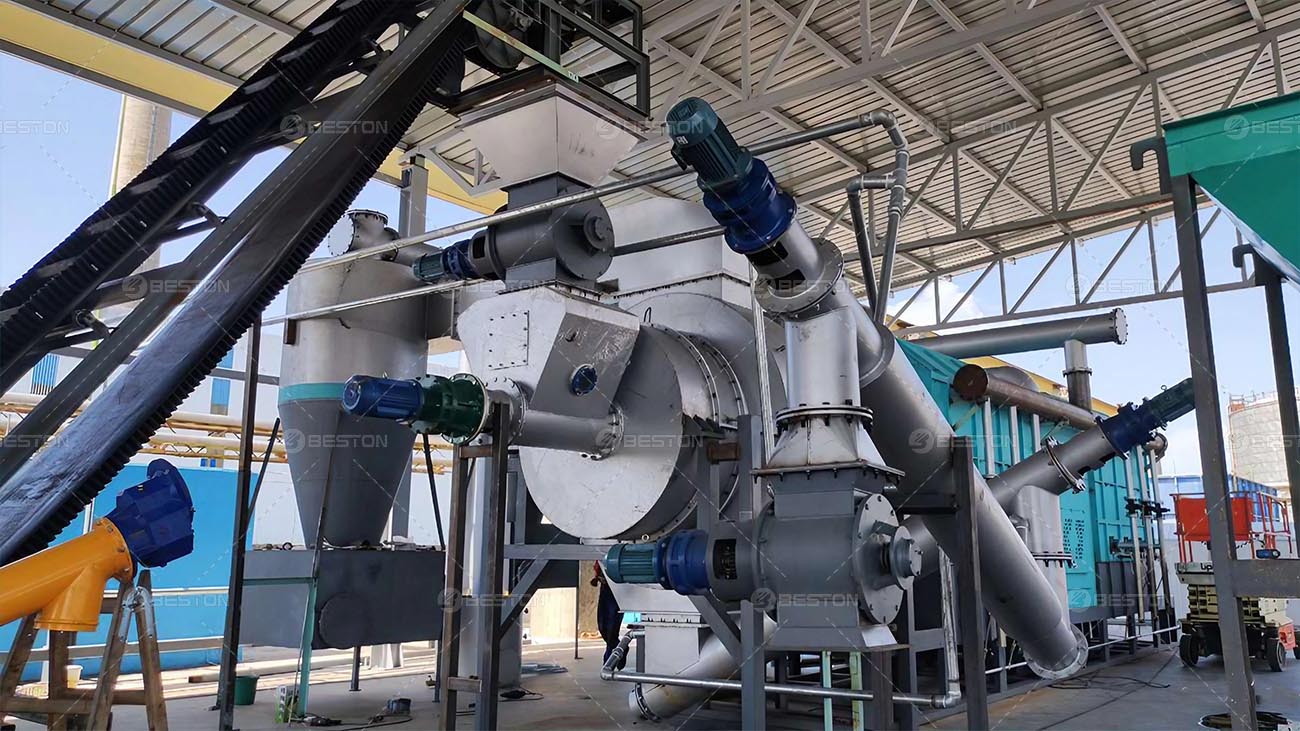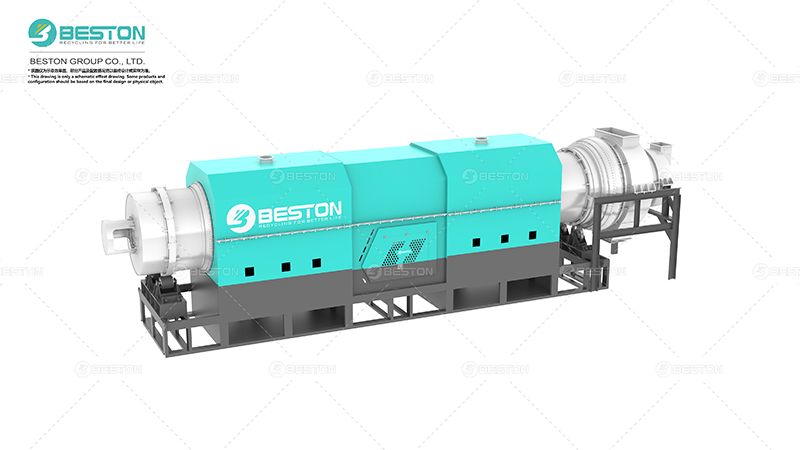The demand for eco-friendly energy sources has significantly increased in recent years, leading to the development and adoption of modern wood charcoal machines. These advanced machines have revolutionized the production of charcoal, making the process more efficient, environmentally friendly, and economically viable. Understanding the advantages of a wood charcoal machine is essential for manufacturers and entrepreneurs in the biomass energy sector. Below are the key benefits associated with modern wood charcoal machines.

1. Enhanced Efficiency in Charcoal Production
One of the most significant advantages of modern wood charcoal machines is their efficiency. Traditional charcoal production methods often involve inefficient burning and require extensive manual labor. In contrast, a modern machine automates the process of converting wood into charcoal, significantly reducing production time.
The machines are designed to optimize every stage of charcoal production, including drying, pyrolysis, and carbonization. By controlling parameters such as temperature and pressure, these machines ensure a higher yield of charcoal while minimizing energy consumption. For instance, the automated process allows for continuous feeding of raw materials, enabling the machine to operate with minimal interruptions, thereby maximizing output.
2. Environmentally Friendly Practices
The environmental impact of charcoal production has come under scrutiny, particularly concerning deforestation and emissions. Modern wood charcoal machines address these concerns by utilizing sustainable practices. These machines often incorporate advanced emissions control technologies that reduce the release of harmful gases during production.
Furthermore, many modern machines are designed to utilize waste wood or biomass, which would otherwise be discarded. This not only promotes waste recycling but also contributes to a circular economy. By transforming wood residues into charcoal, manufacturers can help alleviate pressure on forest resources while generating a renewable energy source.
3. High-Quality Charcoal Output
Quality is a crucial factor in the marketability of charcoal. Modern wood charcoal briquetting machine is engineered to produce high-quality charcoal with superior properties. The controlled carbonization process ensures that the final product has a consistent texture, density, and carbon content, which are essential for various applications, from cooking to industrial use.
The machines can also be tailored to produce different types of charcoal, depending on the specific needs of the market. For example, they can produce activated charcoal, which is widely used in air and water purification. This versatility in production ensures that manufacturers can meet diverse customer demands and maintain competitive advantage.
4. Cost-Effectiveness
Investing in a modern wood charcoal machine can lead to significant cost savings in the long run. While the initial capital investment may be substantial, the automation and efficiency of these machines reduce operational costs. They require fewer labor resources and lower energy consumption compared to traditional methods.
Additionally, the higher yield of quality charcoal generated by modern machines means that producers can achieve greater profitability. With the ability to produce charcoal more rapidly and efficiently, businesses can respond more effectively to market demands and maximize their revenue potential.
5. User-Friendly Operation
Modern wood charcoal machines are designed with user-friendliness in mind. Many models feature intuitive control panels that allow operators to monitor and adjust parameters easily. This simplicity reduces the learning curve for new operators and ensures consistent production quality.
Moreover, many manufacturers offer comprehensive training and support to users of their machines. This assistance enables operators to understand how to make charcoal from wood efficiently, ensuring optimal performance and minimizing downtime due to operational errors. Enhanced usability promotes a smoother production process and improves overall productivity.
6. Safety Features and Compliance
The safety of workers is paramount in any industrial operation. Modern wood charcoal machines incorporate various safety features that minimize risks associated with charcoal production. These include automated shut-off mechanisms, emergency stop buttons, and heat-resistant materials that prevent accidents and injuries.
Additionally, compliance with environmental regulations is essential for manufacturers. Modern machines often adhere to stringent standards regarding emissions and waste management. This not only helps businesses avoid legal penalties but also enhances their reputation as responsible and sustainable operators in the charcoal industry.
7. Scalability and Flexibility
As businesses grow, their production needs can change. Modern wood charcoal machines offer scalability, allowing manufacturers to adjust their production capacity according to market demands. Whether expanding operations or diversifying product offerings, these machines can accommodate various production scales without requiring extensive modifications.

Flexibility is also a crucial advantage, as these machines can be configured to process different types of wood and biomass feedstocks. This adaptability allows manufacturers to take advantage of available resources and respond to changing market dynamics, further enhancing their competitiveness.
Conclusion
The advantages of modern wood charcoal machines are substantial, encompassing enhanced efficiency, environmental sustainability, high-quality output, cost-effectiveness, user-friendliness, safety, and scalability. As the demand for sustainable energy solutions continues to rise, investing in advanced charcoal production technologies is becoming increasingly important for manufacturers. Embracing these modern machines not only improves operational performance but also positions businesses to thrive in the evolving biomass energy market. For more waste wood recycling solutions, please consult Beston China.